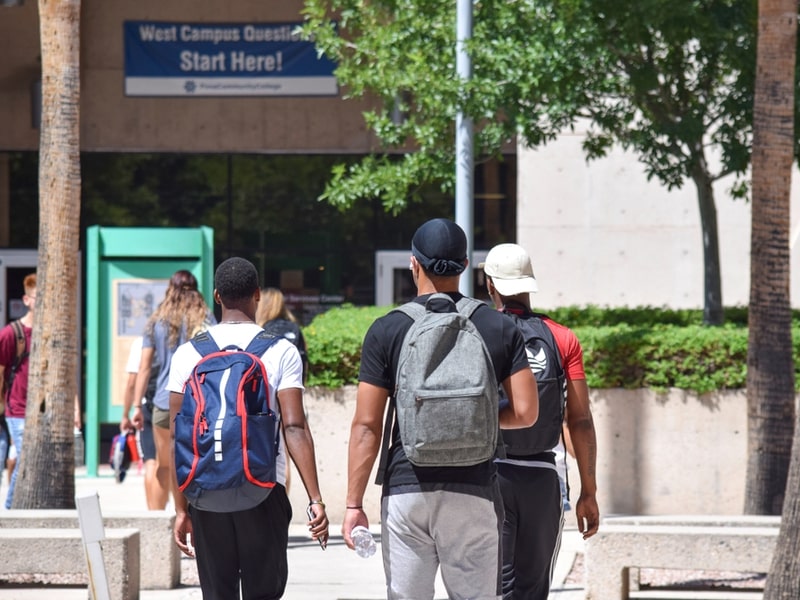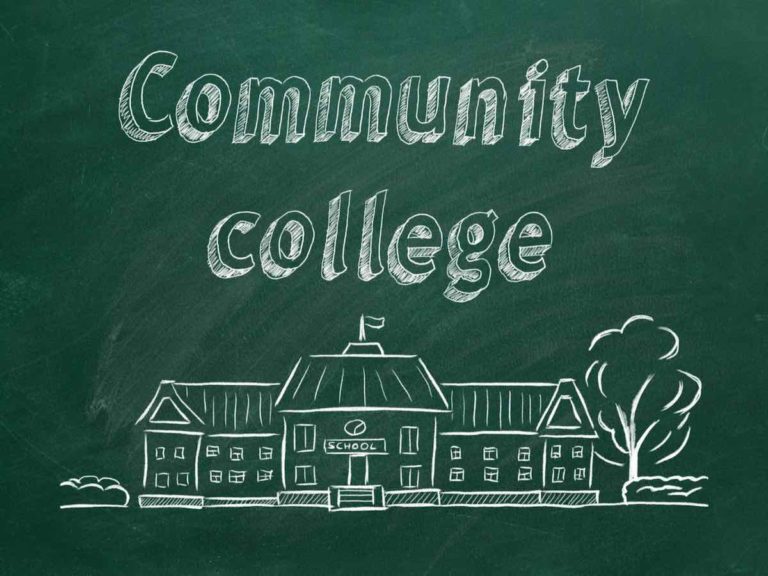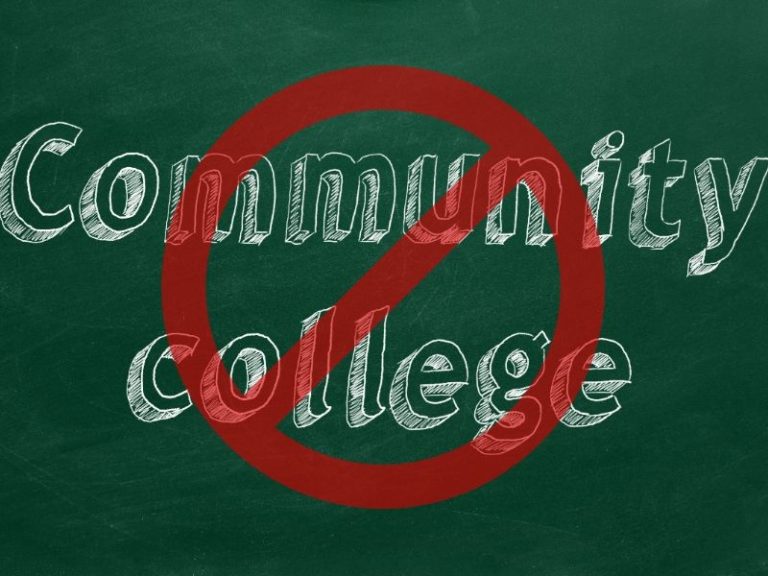Think Community College’s a Breeze? The Honest Scoop on 2-Year College Difficulty
Some high school graduates want the fastest route to a college credential.
Others need more time to decide on their academic and career goals.
Either way, attending a community college would be a fantastic opportunity for them to obtain an associate degree or a certificate or explore professional options that align with their interests and passions.
But just because it’s easy to get into a two-year institution and quick to get out of it doesn’t mean that you should not prepare yourself for it academically, mentally, and emotionally.
Is community college easier than university?
Brace yourself for this fact:
Going to a community college can be just as hard as going to a four-year institution!

Community College Admissions is Bare-Bones
The national average community college acceptance rate is around 80%.
Some flagship universities have higher acceptance rates:
| Flagship University | Acceptance Rate |
|---|---|
| University of South Dakota | 99% |
| University of Mississippi | 97% |
| University of Wyoming | 96% |
| University of Maine | 94% |
| University of Utah | 89% |
| University of Iowa | 86% |
| University of Nevada, Reno | 86% |
| University of New Hampshire | 85% |
| University of North Dakota | 83% |
There are application forms to fill out and documents to submit.
In most instances, however, applying to a community college is less demanding and time-consuming than applying to a four-year college or university, especially a selective one.
Open Admissions? It’s Open to All High School Grads!
Some community colleges are open admissions.
Open admission or open enrollment is a policy at non-competitive institutions where anyone with a high school diploma (or an equivalent, such as a GED certificate) gets in.
The US Department of Education says that over 60% of public community colleges are open admissions.
Not all open admissions schools are community colleges — 600+ four-year institutions are open admissions, ranging from public universities to private for-profit schools.
Basic Admissions Requirements
What applicants need to submit when applying can vary across community colleges.
However, the community college system in the US has a standard admissions process, often asking minimum requirements from applicants for them to get in.
For example, California community colleges must admit residents with a high school diploma or a GED.
They may also admit those without a high school diploma or an equivalent, resident or non-resident, provided they are over 18 and can benefit from the academic programs offered.
One counselor recommendation.
Two academic recommendations.
Personal statement.
Short-answer questions.
Many four-year colleges and universities require applicants to submit these and others.
In most instances, you don’t have to worry about these things when applying to community colleges, thus making the college application process less stressful plus increasing your chances of getting in.
Related Article: Do You Need SAT to Transfer From Community College?
Academics: Same Rigor Level, Harder for Some
Community college programs take half the time to complete than four-year programs; therefore, community college classes must be easier to understand and complete with passing grades.
Wrong!
Just look at this Gallup finding:
“… Americans view the quality of education they [four-year colleges and universities] provide as no better than that of community colleges.”
Certain scholastic skills (grammar, reading comprehension, arithmetic, memorization, etc.) of some students at community college may no longer be as sharp as before, particularly those who have been out of school for a while.
After all, only around 19% of two-year institution students are fresh from high school.
Practically Offering the Same Rigorous Courses
Courses at community colleges often cover the same materials as those at universities.
Many assume that courses at two-year institutions are elementary, given that it’s not uncommon for some low-income students to start their college careers at community colleges, taking general education courses.
A typical semester at a community college consists of gen ed and major courses.
While program requirements can vary from one community college to the next, associate degree programs are typically structured in the same manner in that certain courses are graduation requirements.
Small Class Sizes: Both Good and Bad News
The consensus is that small classes are better for degree-seeking students.
Classes with 20 or fewer students are considered small classes, and they promote individualized instruction — professors can give you enough attention and provide personalized feedback.
Up to two-thirds of classes at small four-year institutions have no more than 20 students.
Meanwhile, at some large universities, some classes can have 150 to 300 students!
The average class size at community colleges is 25 to 35 students, which is wonderful news for undergraduates who want quality education at a fraction of the cost of elite private institutions.
However, it’s what makes studying at community colleges challenging for some exactly.
With small classes, students not serious about studying can’t just sit in the back of the classroom to go online or nap during discussions. They must also attend each time and participate, too.
Because there are fewer students in the class, professors know your name!
Having Limited Resources is a Hard Truth
Many of the country’s community colleges are resource-constrained, keeping them from providing comprehensive support to help students achieve their educational and career goals.
That’s a fact.
For every dollar spent on education expenses per student attending public, four-year degree-granting institutions, only 75 cents are spent per student at community colleges.
Inadequate facilities.
Outdated technology.
Limited experienced faculty members.
Because of these, community college students who wish to complete their respective programs must go the extra mile by relying on their resilience, resourcefulness, creativity, and problem-solving skills.
Related Article: Four Reasons Why Community College Can Deny You
What Campus Life is Like at a Community College
Most community colleges are commuter schools.
Since first-time, first-year students don’t need to reside on campus and there are no residence halls available, students commute to and from the campus.
It’s worth noting that around 14% of all non-traditional students in the United States attend community colleges.
Such makes campus life at community colleges less vibrant and engaging than at four-year institutions, especially where freshmen students must live on campus for a year or so for engagement, among other things.
Social Life is Negligible at Best
Community colleges offer a different social experience than their four-year counterparts.
They indeed have some of the most diverse campuses in the country, serving most minorities by accepting students from various cultural and socioeconomic backgrounds and also from varied age ranges.
It allows for more effective communication, better critical thinking skills, and improved self-awareness.
However, it’s not uncommon for most community college students to have little to no time for socializing.
Compared to four-year institutions, fewer student clubs and organizations at community colleges are around, which leaves students with limited room for extracurricular activities.
Athletics and Greek life are non-existent on many community college campuses.
With most students being commuters and none being able to build the greatest friendships after classes in their respective dorms, socializing is often limited to off-campus opportunities.
Time Management: Some Priorities Lie Elsewhere
Here’s one more reason why most community college students have no time to socialize: time constraints.
According to the Community College Research Center (CCRC), approximately 80% of all community college students have work while completing their respective associate degree programs.
Of those, around 46% are working full-time.
Meanwhile, the American Association of Community Colleges (AACC) says that 47% of postsecondary students aged 18 to 24 with children are attending community colleges.
That’s roughly three times more than parent students at four-year institutions!
With so many things to take care of, from their careers to their kids or both, who needs time to stay on campus after classes to critique movies, play basketball, or drink?
College students must set their priorities straight.
Balancing one’s undergraduate studies and professional and personal lives is one of the most important things to succeed without compromising any important aspect of their existence.
Related Article: Is Online or Traditional College Harder and Why
Disclaimer: The views and opinions expressed in this article are those of the authors and do not necessarily represent those of the College Reality Check.





